Iran Keeps Details Of Tehran-Washington Deal Under Wraps

The Ministry of Foreign Affairs in Iran refuses to disclose details of the recent Tehran-Washington agreement involving prisoner release and access to frozen funds.

The Ministry of Foreign Affairs in Iran refuses to disclose details of the recent Tehran-Washington agreement involving prisoner release and access to frozen funds.
Foreign Ministry Spokesman Nasser Kanaani said that disclosing specifics to the media would not be "helpful" given the current circumstances.
During a press conference on Monday, Kanani said, "The details of this understanding in the media are not helpful at this point in time." The withholding of information comes in the face of increasing criticism and protests against the agreement, both within Iran and internationally, including in the United States and Israel.
However, Kanaani said that “the Iranian government had prioritized the release of its citizens unjustly detained by the American government, as well as the partial release of Iran's blocked assets, which had been frozen due to what Iran contends is illegal pressure by the United States.”
Notably absent from Kanani's comments was any mention of the release of American hostages imprisoned in Iran. When questioned about the timeline for the agreement's implementation, Kanani responded, "We negotiated with the American government through mediation, and a time frame has been set for the realization of both issues."
Refuting reports of $23 billion in released Iranian assets under the agreement, with $5 billion from Japan, Kanani stated, "I do not confirm either the $5 billion nor the other number you mentioned."
Iran's frozen funds are primarily held in banks across South Korea, Iraq, Japan, China, and India, originating from pre-2018 oil transactions prior to the United States' withdrawal from the JCPOA and subsequent sanctions.
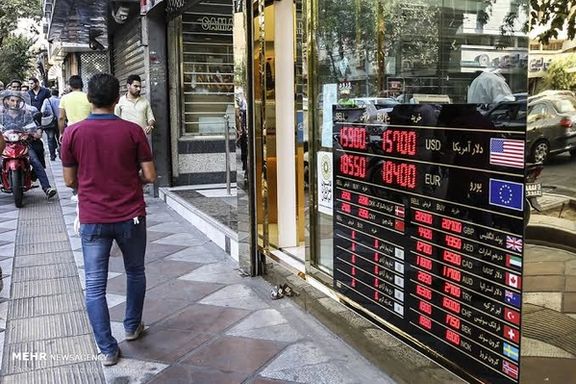
The US-Iran deal to release Tehran’s frozen funds has had little impact on the battered rial as traders understand that no hard cash will enter the market.
The Iranian currency has lingered just below 500,000 per dollar, a trend persisting for weeks. Consequently, the substantial inflationary pressures burdening Iran's economy are unlikely to abate soon, as long as US banking sanctions remain intact, obstructing the repatriation of hard currencies accrued from oil exports.
Shipments of crude remain high, with Iranian officials saying that the government’s target of 1.4 million barrels per day has been reached, but this does not mean Tehran is receiving full payments in dollars or euros from its main customer, China.
Meanwhile, additional media reports suggest not only a $6 billion release from South Korean banks, but also the unlocking of frozen funds in Iraq (estimated between 11-12 billion dollars) and over $3 billion from Japan. These funds will be held in Qatar and Oman, designated for Iran's purchases of essential goods such as food, medicine, and other humanitarian items.
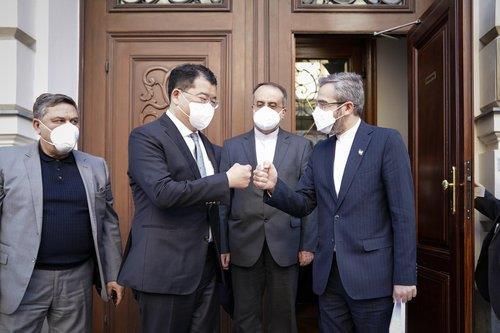
Al Jazeera reported Sunday that up to $23 billion will be released from South Korea, Iraq and Japan although it will not bring a substantial boost to Iran’s economy. It hinted that the deal was not just a hostage release agreement, but it also aims at freezing Iran’s nuclear program at current levels. This begs the question if US sanctions will be enforced until the US presidential elections next year, or there is perhaps a secret deal to ease the pressure.
This is just part of the concerns critics of the deal in the United States have. The main objection to pay $6 billion for 5 hostages is the potential danger it creates for American citizens around the world, who can be arrested or taken hostage by an array of hostile actors, not excluding China and Russia.
The Wall Street Journal in an editorial on Sunday slammed the Biden administration for paying $1.2 billion per hostage and dismissed the claim by the administration that the funds will only be available for humanitarian needs.
“Iran will use the cash the same way it did the money it received from the Barack Obama-John Kerry 2015 nuclear deal—to spread mayhem in the Middle East and beyond,” WSJ said. The newspaper also argued that “Money is fungible, as the White House knows, and its ‘humanitarian purposes’ line is best understood as political cover to justify the money-for-hostages deal. In a competition for the funds between the Islamic Revolutionary Guard Corps and the public health of the Iranian people, who do you think wins?”
The argument that money is fungible is even more applicable to Iran, which has an opaque political system not accountable to the people. Most companies that would be involved in the ‘humanitarian’ imports with the released funds are controlled by regime insiders and the Revolutionary Guard.
The WSJ also predicted that the deal is not limited to releasing the American hostages and could be prelude to an informal agreement to ease sanctions in return for an Iranian promise not to escalate its nuclear program.
“This new informal nuclear deal sounds like a less enforceable version of the 2015 pact. Call it money and sanctions relief for promises, and don’t expect Congress to have any say in approving it,” the editorial stated.
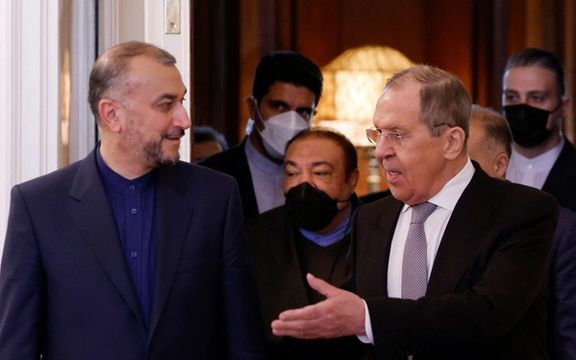
The intensification of international sanctions against Russia has made Iran a potentially major trade partner for Moscow, a website in Tehran said on Saturday.
According to Rouydad24, Iranian officials have started to think of Russia as a $100 billion market for Iranian goods. This, however, is an outlandish expectation given Iran’s own isolation due to sanctions, its crippled economy, and the need for technology and raw materials hard for Iran to acquire.
The volume of trade between Moscow and Tehran reached $4 billion between January and October 2022, a far cry from the $100 billion figure. Russian officials have said that the volume of trade will reach $7.5 billion by 2025.
However, the main area of cooperation between Moscow and Tehran is political and military. The two have been allies in the Syrian civil war and their military ties have been expanding since Russia’s invasion of Ukraine. Iran supplied hundreds of kamikaze drones to Russia that have been extensively used against Ukrainian civilian and infrastructure targets.
Western countries have imposed new sanctions on Iranian individuals and entities for aiding Russia in the war, but a recent move by the United States to release billions of dollars in frozen Iranian funds in exchange for 5 American hostages means Tehran will remain undeterred to expand military ties with Moscow.
Rouydad24 quoted Iranian exporter Ali Hosseinian as saying that the figure will be initially increased to $8 billion, but the final target for trade between Iran and Russia is $40 billion per year.
In the meantime, Russia's export to Iran has grown by 27 percent while Iran's export to Russia also grew by 10 percent in 2022. Iran and the Eurasia Economic Union consisting of Russia, Kazakhstan, Belorussia, Armenia and Kirgizstan signed an agreement in early 2023 to boost exchange of goods, services and labor. Meanwhile, Iran and Russia agreed to cooperate in the areas of technology and logistics, while also signing several other agreements for cooperation in the areas of aircraft manufacturing, oil and gas pipelines and natural gas field development.
Iran is Rusia's second biggest trade partner among the Caspian Sea littoral countries, Rouiydad24 wrote, adding that some 90 percent of Russia's export to Iran are food and agricultural products. At the same time, some 60 percent of Iran's exports to Russia also consist of agricultural products. The rest of its exports to Russia include minerals, construction material, and plastics.
Meanwhile, Iran has called for a boost in Russia's exports to Iran particularly for wheat, grains, maze and cooking oil ingredients. According to the Rouydad24 Russia is capable of providing these items. Iran imports around $10 billion of wheat, maze, various edible oils and animal feed annually and potentially Russia can provide all these as a single-source exporter.
According to Reuters, one controversial item among Iran's imports from Russia is gasoline which Russia sells to Iran at a price $12 per ton higher than market prices.
Earlier this year Russia's VTB Bank opened a branch in Tehran and Iranian experts said that the branch will facilitate Iran's safe and low-cost access to the banking systems of Europe, Africa and Asia. It is not clear how this can be done while the Western and other international sanctions are in place against both Tehran and Moscow. International access for Russia’s own banking system has been severely restricted.
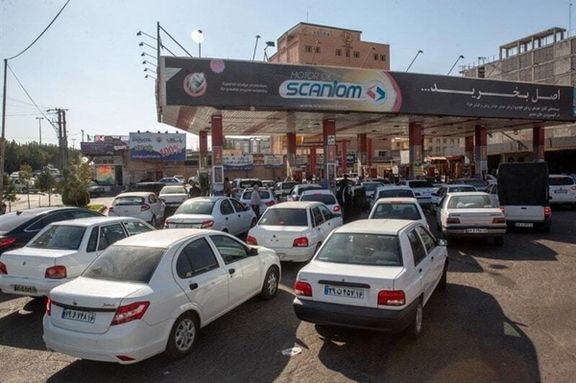
In response to a large gap between gasoline production and consumption, Iran has scaled back its distribution and turned to using its strategic reserves.
According to Iran International sources, the Iranian Oil Ministry has taken the step citing the need to curb smuggling. The other option would be to raise prices but the regime is worried that it could trigger protests across the nation.
The National Iranian Oil Refining and Distribution Company (NIORDC), a department within the ministry, has released around 900 million liters of strategic gasoline reserves into the market in an effort to make up the deficit. An informed source disclosed that the country's reserves now stand at approximately 500 million liters, barely enough for more than four days in the event of any production-related disruptions.
The source added that there are challenges for gasoline imports both domestically and internationally, leading to a consistent reduction of gasoline distribution in various regions of the country.
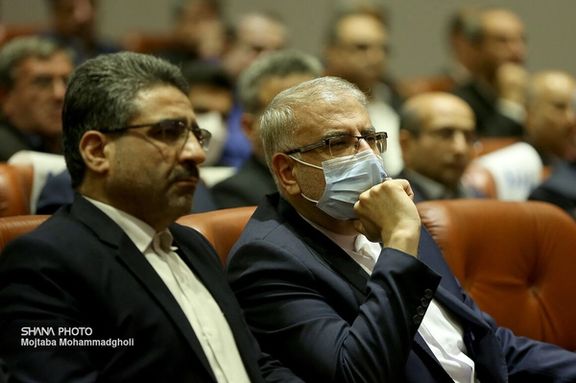
Both Oil Minister Javad Owji and NIORDC Manager Ali-Akbar Nejadali have confirmed the supply restriction. Nejadali explained that in light of increased summer travel and to ensure a steady distribution and prevent station closures, a new measure has been introduced, limiting each refueling session to only 30 to 40 liters.
Iran International reported in late July that the government has postponed tighter fuel rationing implementation due to the approaching anniversary of last year's anti-regime protests in September.
Earlier in the month, NIORDC deputy manager Ali Ziyar said that the average daily consumption of gasoline has hit 124 million liters, indicating a 20-percent increase compared with the previous year. “In recent years, the maximum annual growth in gasoline consumption has been seven percent, but this year we have suddenly experienced a 20 percent increase in consumption,” he said, tacitly acknowledging that a large amount of fuel is being smuggled out of the country. He also stated that the daily gap between production and consumption is 17 million liters.
The government, which controls one of the world's largest oil and gas reserves, sells gasoline at extremely low, subsidized prices, charging less than 10 US cents per gallon, or less than 3 cents per liter, while neighboring oil-producers have much higher prices, in line with international market rates. Second only to Venezuela, Iran has the world’s cheapest gasoline price. The extremely low fuel prices leads to small and large-scale smuggling to neighboring countries.
Back in March, Iran International unveiled a classified document detailing a late February meeting at the presidential office. This document revealed that dangerously low levels of strategic fuel reserves forced major refinery repairs to be postponed to maximize short-term production. Officials were advised to avoid any public statements or suggestions that could be construed as intentions to raise current fuel prices, fearing it might ignite public discontent.
One of the main reasons that the Islamic Republic has not managed to increase prices in the midst of the current economic crisis is because it faced the worst wave of unrest in years since September 2022. A fuel price hike would risk fanning the flames of unrest further. For years there has been talk of adjusting prices, but since 2018 Iran’s currency has dropped 12-fold and any increase needs to be huge to be meaningful in US dollars.
In November 2019, a government decision to increase fuel prices by 50–200 percent triggered a cycle of protests and unrest across the country that lasted for over two weeks. Regime forces killed at least 1,500 civilians, in the worst such crackdown in Iran.
While the country is hugely dependent on the revenues from crude oil exports, due to sanctions and mismanagement, it has failed to modernize the energy sector, with power shortages persisting most of the year. Systemic corruption also further cripples the weak system. The situation has been grave in recent years but since the administration of Ebrahim Raisi assumed office in 2021, the entire energy management system is going haywire, drawing backlash from not only the public but even regime insiders.
In recent days, rumors of an impending gasoline price increase have once again ignited, prompting a rush of people to gas stations.
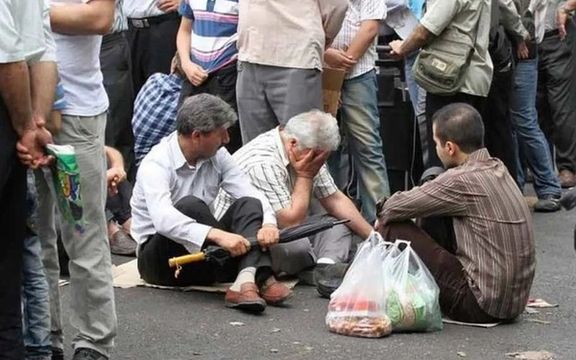
Not only is Iran's economic situation critical, but it is also ailing in terms of politics, culture, and ethics, a leading conservative newspaper stated in an editorial.
Pointing to "various forms of corruption in the government's management system," the Jomhuriye Eslami (Islamic Republic) daily recommended that government officials heed well-wishers and refrain from attributing "all of the country's problems to the enemies."
The newspaper accused government officials of isolating themselves within a bubble, entangled in illusions detached from societal realities. The daily also recommended that officials break free from this isolating bubble to reengage with the broader society.
Jomhouri Eslami stated that President Ebrahim Raisi's mandate aimed to rectify the corruption and deviations from principles during the populist government of former President Mahmoud Ahmadinejad (2005-2013). However, not only has this objective gone unmet, but the public also learns of fresh corruption cases within the government on a daily basis.
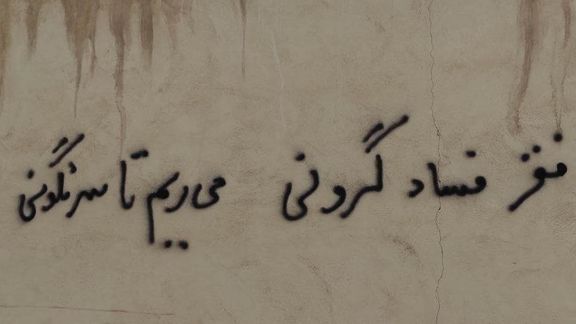
The conservative publication argued that given the prevailing circumstances, certain individuals become entangled in financial corruption due to their struggle to meet basic needs. Conversely, others succumb to political, cultural, and ethical deviations due to their excessive wealth.
However, the paper did not underscore the fact that the opaque political system, built upon loyalty to the regime, allows officials to engage in corruption and amass personal wealth.
It subsequently cited the recent "sex scandals involving certain prominent cultural officials in the country" and the "involvement of other officials in bribery, embezzlement, and money laundering," asserting that these incidents signify the nation's deteriorating state. The publication added that "last year, around 120 officials were apprehended for financial corruption, and halfway through this year, the tally has already reached 144."
In July, there was widespread outrage among Iranians as successive videos surfaced, revealing officials responsible for upholding moral standards and religious norms engaging in same-sex activities, a grave violation under Sharia law.
The daily further stated that these figures are alarming for a government that claims to be Islamic.
Meanwhile, Mostafa Derayati, a leading member of the reformist Unity of Nation Party told Rouydad24 website that "The government has ostracized the country's most capable officials and has handed over the affairs of the state to inefficient individuals."
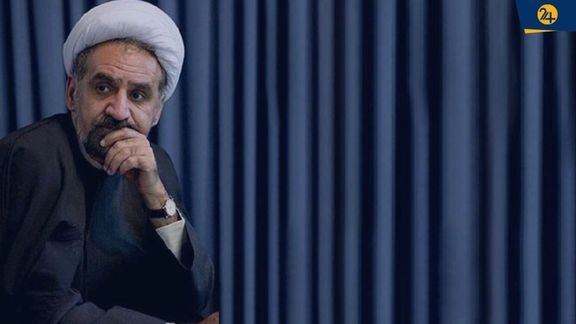
Adding that the current presidential administration is filled with inefficient officials, Derayati argued that capable figures were pushed into isolation when the hardliner Guardian Council disqualified tens of moderate and reformist candidates in the 2020 parliamentary and the 2021 presidential elections.
"It was evident that the governance of the nation was transitioning to a group of individuals lacking analytical acumen and the capacity to address the country's challenges," he remarked.
Derayati, a reformist member of the Islamic Studies Center, reiterated that today, even those who supported President Ebrahim Raisi in the 2021 elections are criticizing him. "In fact, the Raisi administration's performance has been so full of mistakes during the past two years that it is really hard to defend his government." He added, "We have handed over the affairs of the state to a government whose president has no executive experience. It was clear from the very beginning that he knew very little about management."
Another critic, lawmaker Ahmad Alirezabeigi, asserted that the statements made by Raisi's aides indicate either a lack of a comprehensive strategy for governing the state or, even if such a strategy exists, they lack the financial resources required to implement their envisioned objectives.
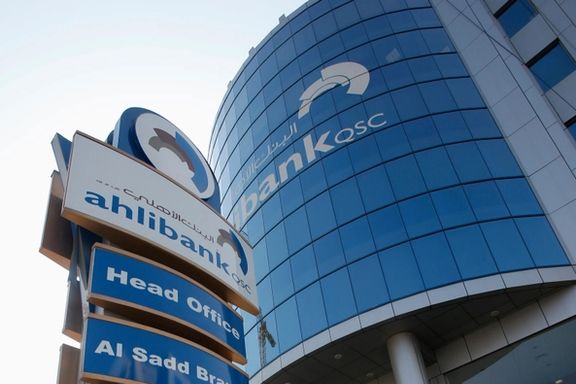
The transfer of Iran's funds from South Korea to Qatar as part of a US hostage release deal is likely to take 30 to 45 days, American sources told CNN.
According to CNN sources, Iran’s $6 billion, earned from oil sales before the US reimposed sanctions on Iran in 2018, would go through Switzerland before getting to Qatar.
The funds, in a restricted account in South Korea, will be put in restricted accounts in Qatar, from where they will be readily available for “non-sanctionable trade” of goods like food and medicine.
Haaretz said the path of transferring this money is complex and convoluted, and required separate negotiations that took place with the participation of Oman, Britain and Switzerland, in addition to Qatar. It added that the six billion dollars have already moved from South Korea to a Swiss bank, deposited into a special account.
The US Treasury will be heavily involved, as the transfer of funds is expected to take weeks to complete particularly because the US is not lifting any sanctions in order to facilitate the transfer, CNN sources said. Haaretz, however, said the US Treasury is now searching for an option to expedite the process.
White House spokesperson John Kirby said that “there will be a rigorous process of due diligence and standards applied with input from the US Treasury Department."
However, it is not clear how the US will control the disbursements of the funds, which will be kept in six Iranian bank accounts in Qatar in euros, as any transfer of funds will be outside US control of dollar-denominated transactions.
Earlier, Iran's foreign ministry and government media insisted that the unfrozen funds would be under Tehran's direct and unrestricted control.
Five American citizens, already transferred from Tehran Evin prison to a hotel, will be allowed to leave Iran once the funds are unfrozen.